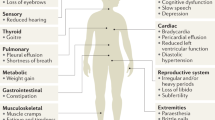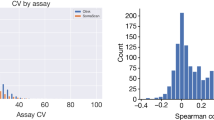Abstract
EVIDENCE is accumulating that sex-linked inherited deficiency of erythrocyte glucose-6-phosphate dehydrogenase is common in Central Africa. Frequencies of 15–30 per cent have been recorded in males living in malarious parts of the Belgian Congo1, Nigeria2 and East Africa3. In non-malarious parts of East Africa frequencies of 3 per cent or less have been found3, and in South African Bantu the frequency is about 2 per cent4.
This is a preview of subscription content, access via your institution
Access options
Subscribe to this journal
Receive 51 print issues and online access
$199.00 per year
only $3.90 per issue
Buy this article
- Purchase on Springer Link
- Instant access to full article PDF
Prices may be subject to local taxes which are calculated during checkout
Similar content being viewed by others
References
Motulsky, A. G., Human Biology, 32, 28 (1960).
Gilles, H. M., Watson-Williams, J., and Taylor, B. G., Nature, 185, 257 (1960).
Allison, A. C., Nature, 186, 531 (1960).
Charlton, R. W., and Bothwell, T. H., South Afr. J. Med. Sci., 24, 88 (1959).
Author information
Authors and Affiliations
Rights and permissions
About this article
Cite this article
ALLISON, A., CHARLES, L. & McGREGOR, I. Erythrocyte Glucose-6-Phosphate Dehydrogenase Deficiency in West Africa. Nature 190, 1198–1199 (1961). https://doi.org/10.1038/1901198a0
Issue Date:
DOI: https://doi.org/10.1038/1901198a0
This article is cited by
-
The prevalence of glucose-6-phosphate dehydrogenase deficiency in Gambian school children
Malaria Journal (2014)
-
Red cell glucose 6 phosphate dehydrogenase genotypes of the population of two West African villages
Human Genetics (1978)
-
Erythrocyte Glucose-6-phosphate Dehydrogenase Deficiency in Uganda
Nature (1967)
Comments
By submitting a comment you agree to abide by our Terms and Community Guidelines. If you find something abusive or that does not comply with our terms or guidelines please flag it as inappropriate.



